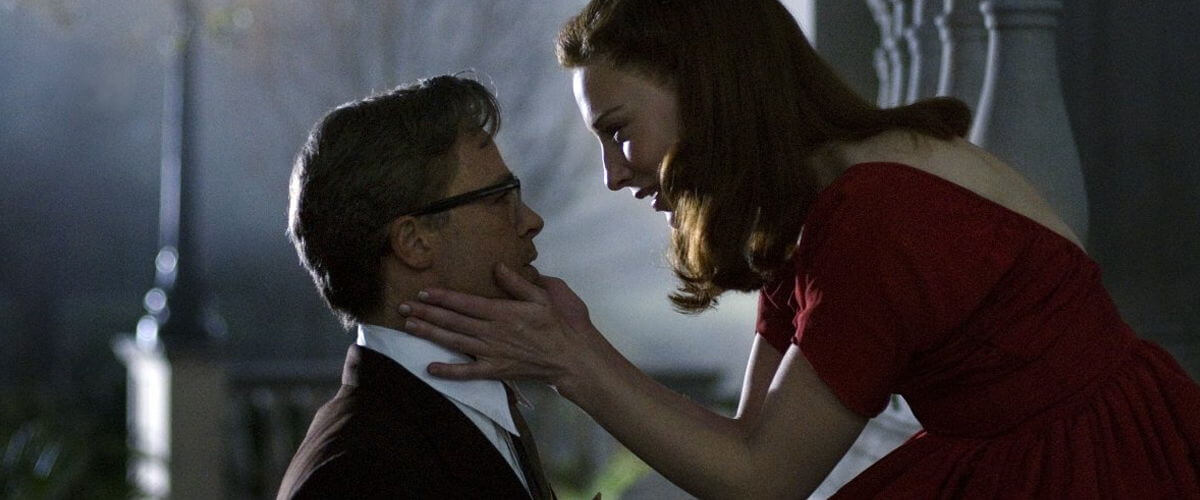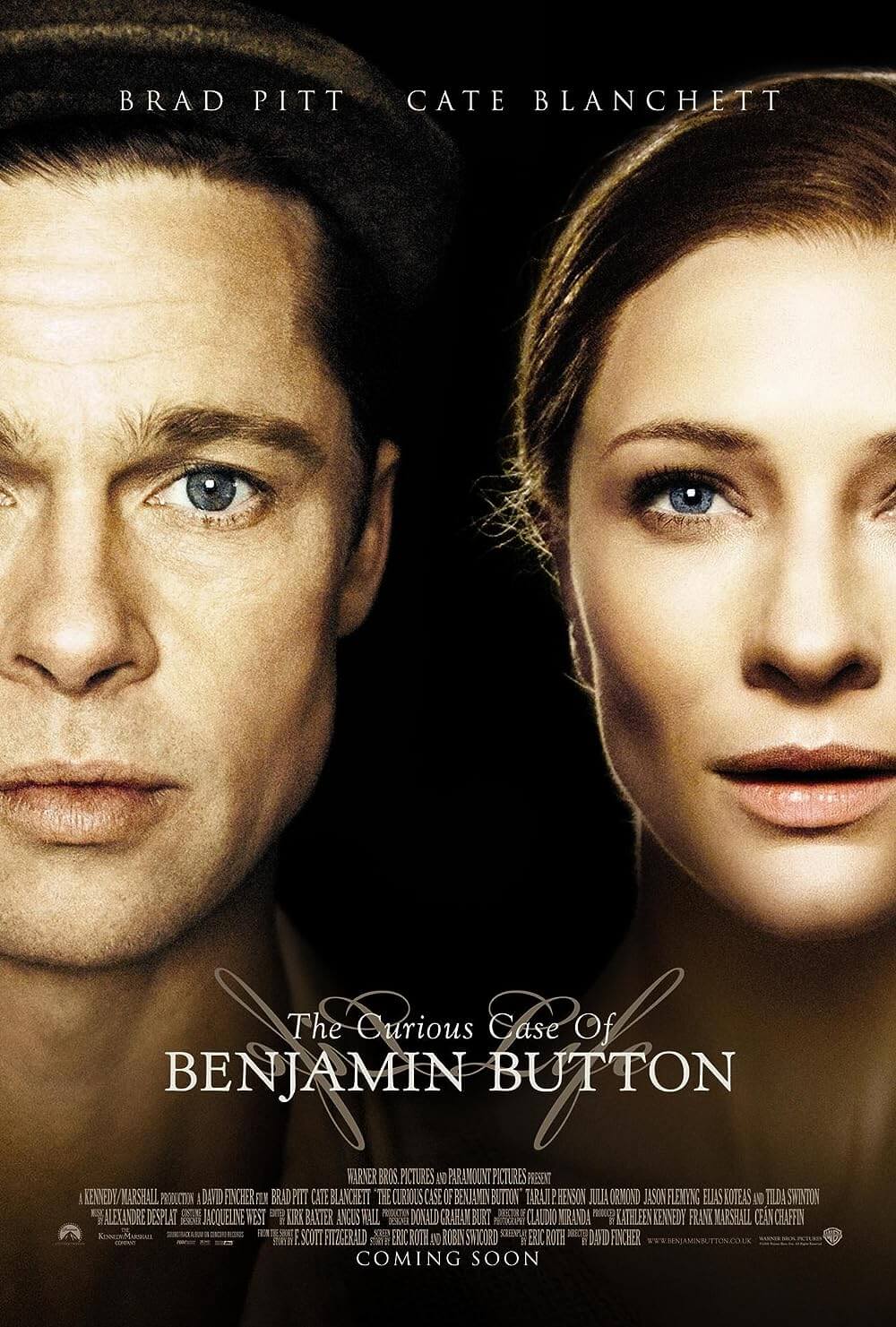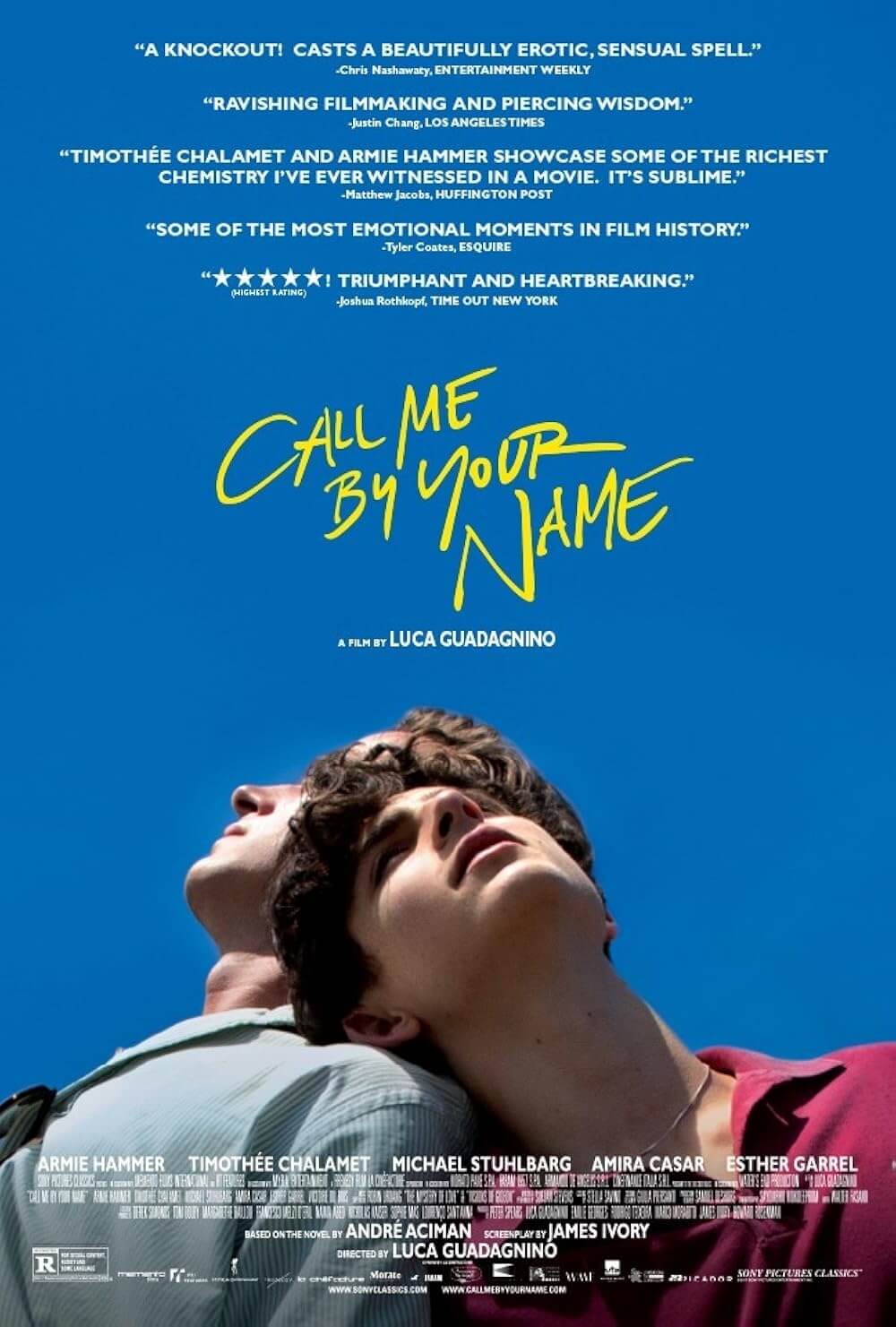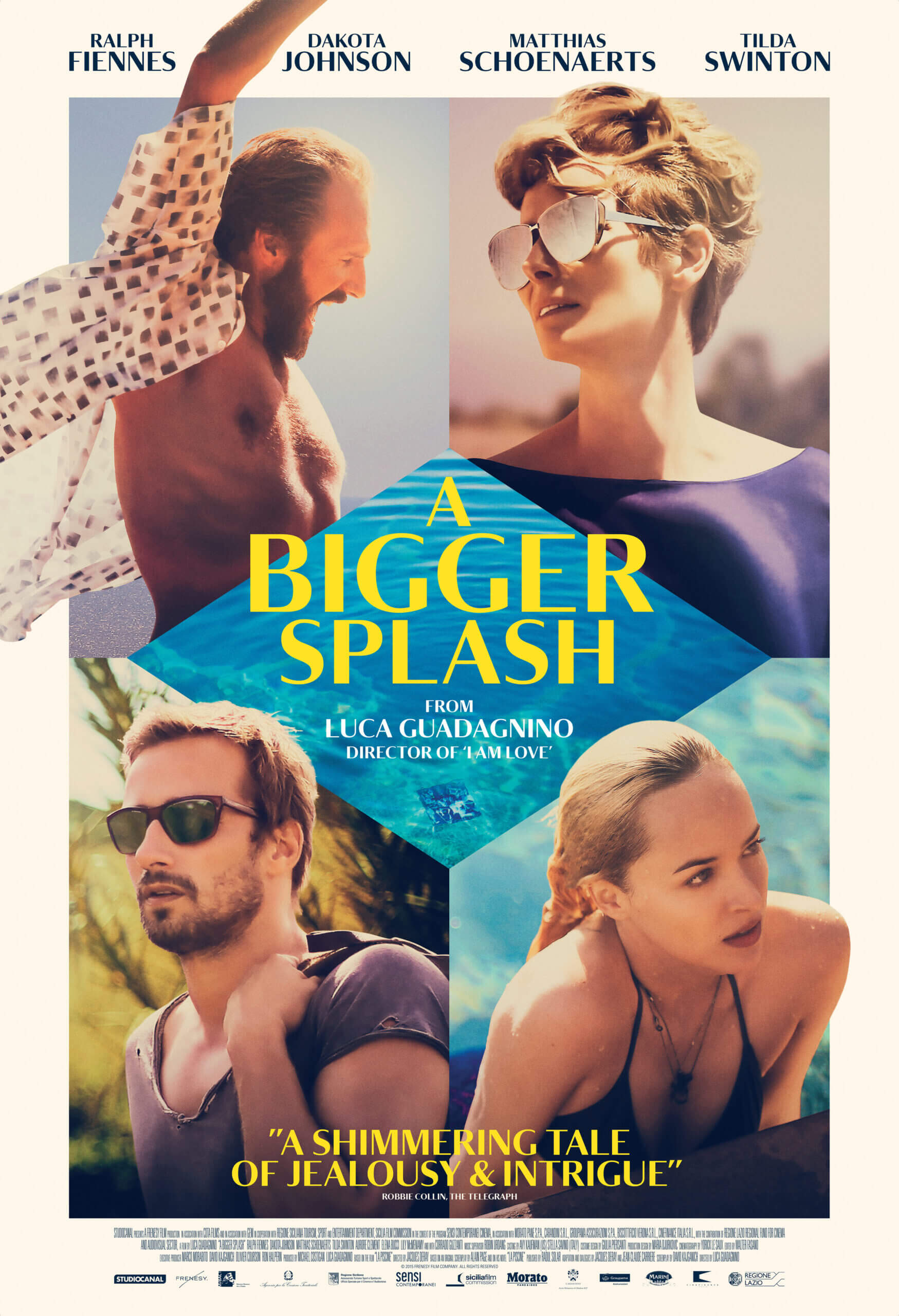
The Curious Case of Benjamin Button
By Brian Eggert |
David Fincher’s The Curious Case of Benjamin Button surrounds itself in an atmosphere of enchantment, where the circumstances feel strangely foreign, but the emotions expressed are relative. The effect, which isn’t fully grasped until absorbed in its entirety, plays like a moody fairy tale, romantic and magical, with flourishes both elegiac and unusual. What progresses is a film of singular beauty and splendor that gives new meaning to Plato’s quotation, “The unexamined life is not worth living.” Indeed, such a life demands examination.
Born in 1918, blind from cataracts, joints stiff with arthritis, and skin tightly wrinkled over his tiny body, Benjamin shows all the signs of being in his eighties. Except, of course, for his infant size. His body and mind remain on opposite gears. His brain progresses forward, having to learn to speak and walk, while his body slowly grows younger. Upon his birth, Benjamin’s mother dies and, taken aback by the child’s appearance, his father, Thomas Button (Jason Flemyng), abandons the boy, leaving him on the doorstep of Queenie (Taraji P. Henson), an attendant at a home for seniors in New Orleans. Benjamin, played by Brad Pitt, finds some peace among the elderly residents, able to relate his childhood to the aged folks around him, seeing little difference between youth and old age. There he meets Daisy, with whom he spends his life attempting to align.
Benjamin’s story is related in 2005 in the wake of the Katrina hurricane, in a hospital room where Daisy (Cate Blanchett) slowly fades from old age. Her daughter (Julia Ormond) reads Benjamin’s diary, kept by Daisy along with postcards and remembrances. They met when they were young in the seniors’ home, when she visited her grandmother and found the sprightly Benjamin an oddity among the residents. But their mutual fascination was hardly appropriate given Benjamin’s appearance. Daisy matures into adulthood, becoming a ballet dancer far away. And as Benjamin’s body gains strength, he takes a series of worldwide adventures: On a tugboat throughout the Atlantic with lively Captain Mike (Jared Harris) or in Russia for his first affair with the wife (Tilda Swinton) of a British spy. Over time, Benjamin and Daisy meet somewhere in the middle for a brief and fruitful love, destined to grow apart again as she ages, and his mind deteriorates with his body growing younger.
Pitt evokes each temporal transition with the help of seamless aging special effects, both makeup and computer-generated, though mostly the latter. The result is simply breathtaking to behold, creating something audiences have never seen—a child in the body of an elderly man, or vice versa—but with a reality that makes it utterly believable. And yet, Pitt’s omnipresent charisma as an actor comes through CGI, as Benjamin’s eyes show fear and pain and quiet acceptance through his many out-of-joint stations in life. The same technology is applied to Blanchett, who conveys her character’s various ages with the expertise we’ve come to expect from her brand of talent.
F. Scott Fitzgerald planted the seed in 1922 with his original short story, but screenwriter Eric Roth (Forrest Gump, The Insider) allowed it to grow into something more quietly sophisticated. The film meditates on the life presented, toying with the conventions of traditional biography-type storylines, moving past the birth-life-death scenario into an entirely more poignant and lyrical realm of storytelling. Epic without feeling like a polished Hollywood production, Roth’s screenplay is one of his best, maintaining a substantial emotionalism that so many of his screenplays (The Good Shepherd, Munich) have lacked.
The true visionary of the picture is David Fincher, who began his separation from dark thrillers like Fight Club, The Game, and Seven with last year’s Zodiac, a multi-layered police procedural about obsession. He’s moving away from extravagant camerawork and bravado imagery for the sake of flashy filmmaking and now finds stories that allow him to branch out as a filmmaker and test himself, both in a technical and narrative sense. With the film’s segments in The Great Depression, WWII, and into Modern Times, Fincher’s eye for detail relates them all with unparalleled exactness, employing flawless manipulations of the cinematic apparatus to appear like vintage cameras and antiquated photography in support of his story.
Fincher replaces transparent sentimentality with an uneasy, dark tone wherein the events of the film progress naturally, however unnatural they may seem upon reflection. The human chronicle therein is impressively tangible, using Benjamin’s reverse aging as a tool by which we better understand the meaning of life and the inconsequential yet dire status of its physical surfaces. Looking at age through a glass darkly, The Curious Case of Benjamin Button is an experience to be lived, as opposed to be viewed. It contains arresting sentiments on life, beyond musing about its joys, giving way to an examination of its almost poetic peculiarities.

Unlock More from Deep Focus Review
To keep Deep Focus Review independent, I rely on the generous support of readers like you. By joining our Patreon community or making a one-time donation, you’ll help cover site maintenance and research materials so I can focus on creating more movie reviews and critical analysis. Patrons receive early access to reviews and essays, plus a closer connection to a community of fellow film lovers. If you value my work, please consider supporting DFR on Patreon or show your support in other ways.
Thank you for your readership!
Brian Eggert | Critic, Founder
Deep Focus Review







